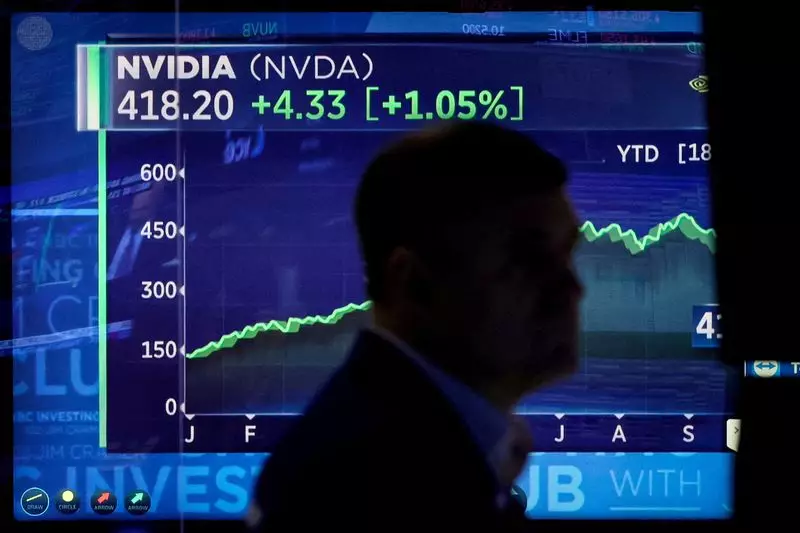As U.S. interest rate cuts are on the horizon, investors are facing a pivotal decision. Should they continue to rely on Big Tech stocks that have been driving returns for over a year, or is it time to shift focus to less popular sectors that may benefit from the easing monetary policy? Massive tech and growth companies such as Nvidia, Microsoft, and Amazon have been key players in the market since early 2023, delivering substantial profits to investors. However, parallels have been drawn between their market dominance and the dot-com bubble of the late 1990s. The recent cool inflation report has solidified expectations of an imminent rate cut by the Federal Reserve, prompting a reevaluation of investment strategies.
Following the information on the potential rate cuts, market dynamics have already shown signs of change. The Nasdaq 100, dominated by tech stocks, experienced its largest decline of the year, while the small-cap Russell 2000 had its most profitable day in 2024. This disparity in performance indicates a potential rotation away from established tech giants towards sectors that have lagged behind this year. For instance, real estate, small-caps, and industrials are poised to benefit from lower interest rates. The equal-weight S&P 500 outperformed the tech-heavy S&P 500, signaling a shift towards broader market participation.
Lower interest rates are expected to favor industries that have struggled in 2024. Smaller companies, particularly biotech firms reliant on credit, are likely to see significant gains. Industrial companies, which often require substantial capital for projects, could also thrive in a low-rate environment. Additionally, declining bond yields could make equity valuations more attractive, reducing competition from fixed-income assets. The decreasing 10-year Treasury yield and a historically high forward earnings ratio of the S&P 500 suggest a favorable environment for equities.
Despite the anticipated shift towards alternative sectors, skepticism remains about the abandonment of megacap tech stocks. These large companies are viewed as more resilient during economic uncertainties and are central to themes like artificial intelligence that have captured investor interest. While there may be a desire for a more diversified investment approach, the dominance of AI-related stocks could limit significant declines in tech giants. The heavy weightings of megacaps in market indexes also create a scenario where any weakness in these stocks could lead to broader market declines.
The concentration of year-to-date gains in companies like Nvidia and Microsoft presents a risk to the overall market stability. If these large-cap tech stocks continue to falter, it could trigger a market-wide correction. Analysts emphasize the importance of monitoring the performance of megacap companies to gauge the health of the market. While there is potential for a broader investment landscape with the impending interest rate cuts, the resilience of tech stocks and their market influence cannot be overlooked.
The looming U.S. interest rate cuts have sparked a reevaluation of investment strategies, particularly regarding the reliance on Big Tech stocks. While sectors like small-caps, real estate, and industrials are poised to benefit from lower rates, the dominance of megacap tech companies and emerging themes like artificial intelligence present challenges to a significant market shift. As investors navigate this evolving landscape, careful consideration of market trends and risk factors will be crucial to making informed decisions.

